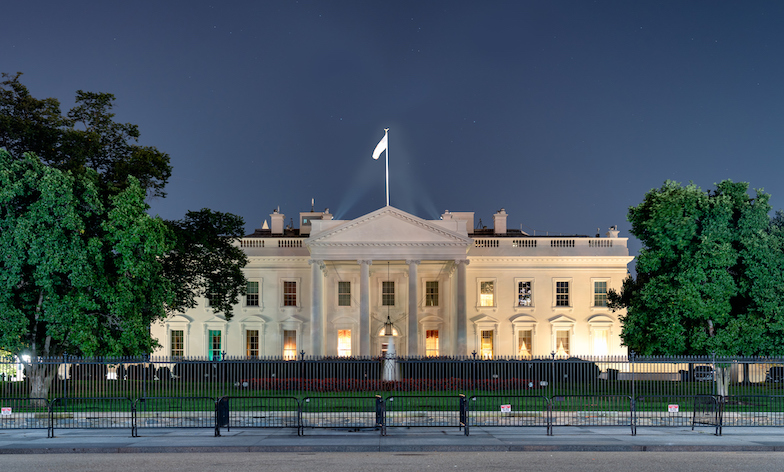
Scholars report that White House review exerts a deregulatory influence on agency rulemaking.
How much control does a sitting President exert over agency rulemaking through the White House Office of Information and Regulatory Affairs (OIRA)? Does the effect depend on the ideologies of the agencies involved?
Simon F. Haeder and Susan Webb Yackee set out to answer these questions in a quantitative analysis of the OIRA review process—a system in which OIRA suggests changes to agencies’ proposed rules before they become final, to ensure compliance with executive policy.
Through their analysis, Haeder and Yackee discovered that OIRA review had significant policy influence during the Obama and Bush Administrations, but that influence did not shift based on the ideology of the sitting President.
They found that agency rules proposed by “more liberally oriented agencies” under both Presidents consistently underwent more frequent and significant changes during the review process than proposals by more moderate or conservative agencies. Furthermore, they stated that these consistent changes to liberal proposed rules supported the view that OIRA exerted a deregulatory influence.
Haeder and Yackee argue that their results are surprising and contradict two major theories of OIRA review. Those theories propose that either the review process will rein in extreme proposals at both ends of the political spectrum—the “Extreme Agency Hypothesis”—or the process will rein in proposals that oppose the sitting president’s political agenda—the “Partisan Hypothesis.”
Since the President appoints the OIRA Administrator and every significant proposed rule must be submitted for review, theorists had believed that OIRA’s actions would mirror presidential politics.
Haeder and Yackee acknowledge that these theories are intuitive and logical, but the assumptions have never been rigorously tested. As Haeder and Yackee state in their paper, “scholars know remarkably little” about how strongly OIRA review influences final agency rules and “even less” about the cumulative effects of the review process under different presidential ideologies.
To test the validity of the Extreme Agency Hypothesis and the Partisan Hypothesis, Haeder and Yackee performed a quantitative investigation of past rulemaking and evaluated nearly 1,500 final rules that underwent OIRA review during the Obama and Bush Administrations.
Haeder and Yackee used two pre-existing scholarly frameworks to classify the political ideology of each final rule and the proposing agency, then compared those views with the sitting President’s ideology. The first framework classified agencies as liberal, conservative, or neither based on the opinions of “experts in bureaucratic politics.” The second classification system relied on “federal executives” with extensive government experience.
Finally, Haeder and Yackee examined 115 “controversial” rules—those which generated lobbying efforts during the final review process—to investigate whether OIRA’s influence changed based on the significance of the rule.
As a result of their analysis, Haeder and Yackee found little “systematic support” for either the Extreme Agency Hypothesis or the Partisan Hypothesis. Under both the liberal Obama Administration and the conservative Bush Administration, it was the most liberal agency proposals that were reined in by OIRA review. Moderate and conservative proposals received fewer changes under both Presidents.
Haeder and Yackee found that their data also provided “support for a provocative third hypothesis”—that OIRA review is most often a deregulatory force. The ultimate effect of softening proposed regulations by liberal agencies, they argue, is a net deregulatory effect on agency policy. But they also acknowledge that their data did not reveal whether this deregulatory policy effect was intentional.
In light of the Trump Administration’s current deregulatory stance, Haeder and Yackee call for further investigation into their results. They emphasize that the rules they examined were finalized during the Bush and Obama Administrations and still showed a net deregulatory effect. The effect under the Trump Administration may be different or more pronounced, they caution. They also state that “OIRA is likely to gain in importance as a venue for policymaking,” which only heightens the need for a “fuller” understanding of the effects of OIRA review on agency policies.
In sum, Haeder and Yackee’s research reveals that the OIRA rule review process did not appear to change with presidential politics as expected. Instead, OIRA consistently reined in proposed rules that were “liberally oriented.” But they also emphasize that their findings merit further review, in order to develop a “generalizable” understanding of the policy effects of OIRA review under different presidential ideologies.
Simon F. Haeder is an assistant professor of public policy at Penn State and Susan Webb Yackee is a professor of public affairs and political science at University of Wisconsin-Madison. Their paper appeared in the Journal of Public Administration Research and Theory.



